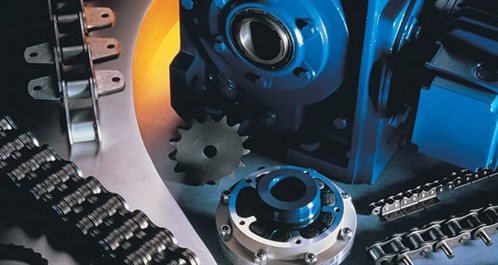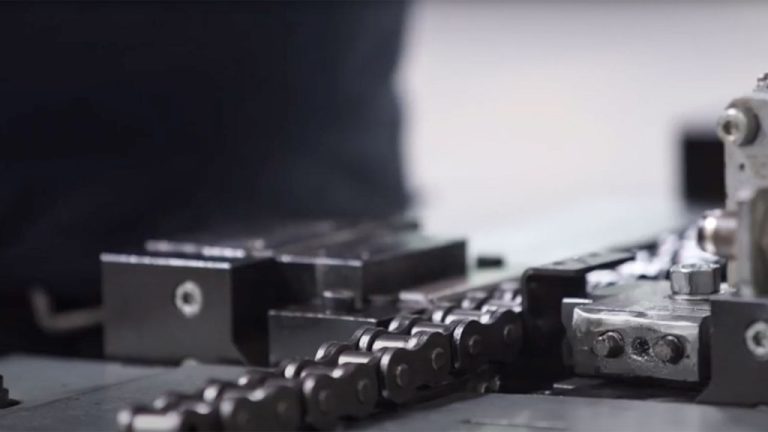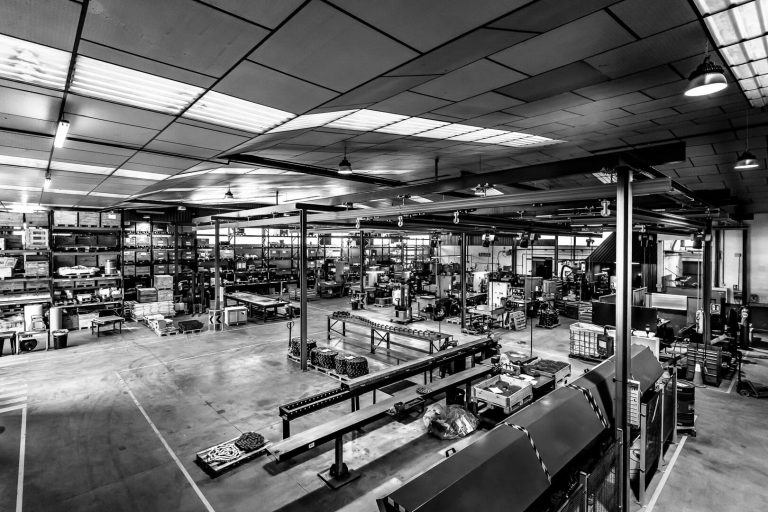Renold plc (LON:RNO), a leading international supplier of industrial chains and related power transmission products, has announced its interim results for the six month period ended 30 September 2022.
| Financial summary | Half year ended | |||
| £m | 30 September 2022 | Restated1 30 September 2021 | Change % | Change % (Constant currency) |
| Revenue | 116.3 | 95.3 | +22.0% | +14.3% |
| Adjusted operating profit2 | 9.6 | 7.2 | +33.3% | +20.8% |
| Return on sales3 | 8.3% | 7.5% | +80bps | +50bps |
| Adjusted profit before tax3 | 7.3 | 5.2 | +40.4% | |
| Net debt4 | 34.0 | 13.9 | ||
| Adjusted earnings per share | 2.7p | 1.9p | +42.1% | |
| Additional statutory measures | ||||
| Operating profit | 8.8 | 8.7 | +1.1% | |
| Profit before tax | 6.5 | 6.7 | (3.0)% | |
| Basic earnings per share | 2.3p | 2.6p | (11.5)% | |
Financial highlights
· Revenue up 22.0% (14.3% at constant exchange rates) to £116.3m driven by strong growth in Chain (2021: £95.3m)
· Adjusted operating profit up 33.3% (20.8% at constant exchange rates) to £9.6m (2021: £7.2m)
· Return on sales increased by 80bps, (50bps at constant exchange rates) to 8.3% (2021: 7.5%). Price increases offset input cost and supply chain challenges
· Net debt as at 30 September 2022 £34.0m (1.2x rolling 12 month EBITDA), higher primarily due to €20.0m initial cash consideration for the acquisition of Industrias YUK, S.A.
· Adjusted EPS up 42.1% to 2.7p (2021: 1.9p)
· IAS 19 pension deficit reduced by 29.6% to £61.3m (31 March 2022: £87.1m)
Business highlights
· Strong first half performance as markets continued to recover, despite cost inflation, economic uncertainty and global supply chain disruption
· Group order intake in the period £121.3m, up 18.9%, excluding prior year long term military contract (11.0% at constant exchange rates)
· Order book at 30 September 2022 £99.0m, continues at record high (30 September 2021: £72.1m)
· Acquisition of Industrias YUK, S.A. (“YUK”) for €24m, increases the Group’s access to the Iberian Chain and wider European CVC markets. The integration process is well progressed and the business is performing ahead of expectations
· Good progress on capital investment, productivity improvements and cost reduction programmes, accelerating the integration of Group-wide supply chain and increasing capabilities
1 See Note 12 for details of the prior period restatements.
2 See below for reconciliation of actual rate, constant exchange rate and adjusted figures.
3 See Note 11 for definitions of adjusted measures and the differences to statutory measures.
4 See Note 8 for a reconciliation of net debt which excludes lease liabilities.
Robert Purcell, Chief Executive of Renold plc, said:
“The strong trading momentum experienced in the second half of the last financial year has continued in the first half, with the Group continuing to successfully manage significant inflation and supply chain disruption, resulting in growing sales and record orders. Whilst we are mindful that global markets continue to be uncertain, with ongoing labour and energy cost inflation and supply chain challenges, the Group’s trading momentum continues to be positive. The Group has record order books and the acquisition of YUK provides opportunities for synergies and further growth.“
Investor Presentation
The Company will conduct a live presentation and Q&A session for investors at 5:30 pm GMT today, 16 November 2022. The presentation is open to all existing and potential shareholders. Those wishing to attend should register via the following link and they will be provided with log in details:
https://us02web.zoom.us/webinar/register/WN_6WUx953NTUmetFUprlFHSA
There will be the opportunity for participants to ask questions at the end of the presentation. Questions can also be emailed to [email protected] ahead of the presentation.
Chief Executive’s statement
The Group has continued to successfully manage a period of sustained cost inflation and supply chain disruption. Materials, energy, labour and transportation costs have all increased substantially, however, selling price increases have been implemented, and margins have been robust. The Group expects to experience further cost pressures through the second half of the year but we are confident that these will again be managed successfully.
Renold continues to focus efforts on driving and optimising performance through identified projects, some requiring capital investment, targeting better operational efficiency, improved design and standardisation of products, better asset utilisation, more flexible working practices, and leveraging improved procurement strategies.
The Group performed well in the first half, delivering an increase in revenues of 22.0% to £116.3m (2021: £95.3m). At constant exchange rates, revenues increased 14.3%. Order intake continues to run ahead of sales, totalling £121.3m for the period. Excluding the impact of the £11.0m long term military contract announced on 13 July 2021, this represents an increase of 18.9% over the prior year equivalent period, or 11.0% at constant exchange rates.
Order books as at 30 September 2022 of £99.0m again represent a record high for the Group, and are 37.3% higher than the prior year equivalent; 24.3% at constant exchange rates.
Adjusted operating profit increased to £9.6m (2021: £7.2m, excluding the impact of non-recurring items, notably the benefit of US PPP loan forgiveness of £1.7m and £0.2m of costs relating to closed sites) with return on sales of 8.3% (2021: 7.5%), driven by productivity enhancements and the benefit of increased volumes and pricing. Statutory operating profit increased to £8.8m (2021: £8.7m), with statutory operating profit margin for the period of 7.6% (2021: 9.1%).
Net debt increased during the period by £20.2m to 34.0m (31 March 2022: £13.8m) due to the acquisition of Industrias YUK, S.A. and an investment in inventory.
M&A
On 3 August 2022 the Group acquired Industrias YUK, S.A. (“YUK”) based in Valencia, Spain, a manufacturer and distributor of high quality conveyor chain (“CVC”) and ancillary products.
The acquisition will allow Renold to leverage YUK’s strong CVC market position in Spain and Portugal to expand sales of the Group’s existing range of premium European transmission chain (“TRC”) products, and enable sales of YUK products throughout Renold’s extensive European sales network. Opportunities exist for significant manufacturing synergies between YUK and Renold’s current international operations.
During the period in which Renold has owned YUK, which includes the August holiday period, YUK has traded ahead of our initial expectations. Since acquisition YUK recorded sales of £2.2m, operating profit of £0.2m, and an initial return on sales of 9.1%.
The initial cash consideration was €20.0 million, with two deferred cash payments of €2.0 million each, payable 12 months and 24 months from the date of acquisition.
There remains an active pipeline of acquisition opportunities which the Group continues to review as part of its growth strategy. The Board adopts a disciplined approach to M&A focussed on complementary, earnings enhancing acquisitions to supplement organic growth, whilst maintaining a conservative level of leverage.
Business and financial review
| Revenue | Adjusted operating profit | Return on sales | ||||
| Restated1 | Restated1 | |||||
| Six month period | 2022/23£m | 2021/22£m | 2022/23 £m | 2021/22£m | 2022/23% | 2022/21% |
| Chain | 89.2 | 76.6 | 11.7 | 9.2 | 13.1 | 12.0 |
| Torque Transmission | 21.5 | 20.6 | 1.4 | 1.8 | 6.5 | 8.7 |
| Head office costs/Inter segment sales elimination | (1.8) | (1.9) | (4.4) | (3.8) | – | – |
| Total Adjusted at constant rates | 108.9 | 95.3 | 8.7 | 7.2 | 8.0 | 7.5 |
| Impact of foreign exchange | 7.4 | – | 0.9 | – | ||
| Total Adjusted at actual rates | 116.3 | 95.3 | 9.6 | 7.2 | 8.3 | 7.5 |
| Adjusting items: | ||||||
| US PPP loan forgiveness | – | – | – | 1.7 | ||
| Dilapidation costs for closed sites | – | – | – | (0.2) | ||
| Amortisation of acquired intangibles | – | – | (0.2) | – | ||
| Acquisition costs | – | – | (0.6) | – | ||
| Statutory | 116.3 | 95.3 | 8.8 | 8.7 | 7.6 | 9.1 |
1 See Note 12 for details of the prior period restatements
Chain
The Chain division’s revenue at constant exchange rates increased by 16.4% (£12.6m) to £89.2m.
Revenue increased across all regions:
· Europe increased turnover 8.6% at constant currency rates. Demand was robust driven by strong OEM and end user activity. The integration of the YUK business is proceeding as planned with the Group already starting to substitute externally sourced products, sell increased CVC product throughout Europe, and increase TRC sales in Spain.
· The Americas increased constant currency revenues by 19.2%, driven by the need to recover costs through pricing, new aftermarket business in transmission chain and strong demand for capital equipment in the food processing, ethanol and mining industries.
· Australasian revenues increased by 27.6% at constant exchange rates, as the business continued to benefit from execution of its growth strategy, targeting the move in Australia to more domestically manufactured goods, continuing strong demand from the Australian mining sector and notable increases in activity in both Indonesia and Malaysia. A new machining centre was installed in the Melbourne factory and progress was made in the development of chains for the cement and coal industries.
· India achieved first half constant currency revenue growth of 13.9% as activity levels recovered. An expansion of the domestic dealer network and an increase in the number of local warehouses is underway, to enhance geographic coverage and service.
· Revenue in China was up 15.4% (at constant exchange rates) as a result of higher demand from Europe and the USA. Significant progress continues to be made in enhancing the performance of the factory in Jintan. As a result of a programme of standardisation and improvement projects, including the commissioning of new equipment, the factory is increasingly able to manufacture higher specification products.
Divisional adjusted operating profit at constant exchange rates was £11.7m, £2.5m higher than the prior year. Return on sales increased by 110bps to 13.1% (2021: 12.0%).
Order intake at constant exchange rates increased by 12.4% to £93.7m, resulting in a book to bill (ratio of orders to sales) for the first half of the year of 105.0% (2021: 108.7%).
Torque Transmission
Divisional revenues at constant exchange rates of £21.5m were £0.9m higher than in the prior year. This was due to increased demand for couplings in Australia and further recovery in North America, along with increased activity in the Gears business.
However, timing of the long-term military contracts resulted in some temporary reduction in revenue. Additionally, a number of key customers with long term supply arrangements in Eastern Europe were impacted by the war in Ukraine.
Divisional operating profit at constant currency reduced by £0.4m to £1.4m due to the timing of the military contract, and a weaker product mix between higher margin spare parts and lower margin OEM business.
Momentum in this division is expected to improve in the second half of the year, underpinned by an increase of 27.1% in order intake compared to the prior year (at constant exchange rates), excluding the benefit of the latest military contract.
Cash flow and net debt
| Restated1 | ||
| Half year to 30 September | 2022/23£m | 2021/22£m |
| Adjusted operating profit | 9.6 | 7.2 |
| Add back: Depreciation and amortisation | 4.9 | 4.7 |
| Share-based payments | 0.5 | 0.5 |
| Adjusted EBITDA | 15.0 | 12.4 |
| Movement in working capital | (7.6) | – |
| Net capital expenditure | (2.2) | (1.3) |
| Operating cash flow | 5.2 | 11.1 |
| Income taxes | (1.3) | (1.3) |
| Pensions cash costs | (3.1) | (2.4) |
| Repayment of principal under lease liabilities | (1.2) | (1.4) |
| Financing costs paid | (1.3) | (0.8) |
| Consideration paid for acquisition2 | (17.8) | (0.3) |
| Own shares purchased | – | (1.8) |
| US PPP loan forgiveness | – | 1.7 |
| Other movements | (0.7) | (0.3) |
| Change in net debt | (20.2) | 4.5 |
| Closing net debt | (34.0) | (13.9) |
1 See Note 12 for details of the prior period restatements
2 Includes £0.1m deferred consideration in relation to the acquisition of the conveyor chain business of Brooks Ltd in the prior year and £0.6m of acquisition costs for Industrias YUK, S.A.
Net Debt increased during the period by £20.2m to £34.0m, largely due to the acquisition of Industrias YUK, S.A. for cash consideration of €20.0m in the period, along with associated costs of £0.6m.
Working capital increased during the period. Inflation has increased inventory value, though this was partly offset by a corresponding increase in creditors. In addition, stocks of raw materials and finished goods have been temporarily increased in Germany in case energy supplies are disrupted this winter. A focus on customer terms and collections has seen debtor days improve, which largely offsets the effect of increased selling prices on receivables.
Further inflationary pressures on materials, together with a continuation of extended shipment times in supplying product between operating sites, will result in the increased levels of inventory being maintained in the second half year. This coupled with higher input prices will result in modest further increases in working capital.
Net capital expenditure was £2.2m representing an increase over the prior half year, but remained below historic levels as delays in the shipment of capital equipment continue. Strategic investments in production capabilities, including improved heat treatment and a roll-out of a standardised IT system continued and are expected to gather pace during the second half of the year.
Corporation tax payments on account (£1.3m) were at normal levels.
Cash financing costs increased in the half year, due both to the additional borrowing resulting from the YUK acquisition, and the increase in interest rates over the period. Further increases in interest rates are expected within the second half of the year.
Pensions
The Group has a number of closed defined benefit pension schemes (accounted for in accordance with IAS 19 ‘Employee Benefits’). During the pandemic, the Group negotiated a £2.8m one-off deferment in contributions with the UK pension scheme trustees. Contributions have now returned to normal levels, but in addition, the first of five annual deferred payments of c.£0.6m was made.
As a result of arrangements agreed with the UK pension scheme trustees and approved by the Pension Regulator, pension cash costs are known and stable, though increasing by RPI capped at 5%.
The Group’s IAS 19 deficit decreased from £100.3m at 30 September 2021 to £61.3m at 30 September 2022.
The yield on corporate bonds increased sharply during the period. Consequently the discount rates used for the UK scheme rose from 2.75% to 5.45%, and resulted in a net reduction in UK pension liabilities of £22.9m. The long term expectation for CPI inflation remained broadly stable at 3.20% (3.25% prior year). Asset returns fell sharply during the period as both the value of gilts and equities fell. The scheme has insurance assets linked directly to the benefits of certain scheme members. As the liability to these members reduces, for example with an increase in discount rate, so does the value of the corresponding insurance asset.
Pension liabilities in non-UK schemes reduced by £2.9m to £20.1m, due in the main to an increase in discount rates.
The net financing expense (a non-cash item) was £1.0m (2021: £0.9m).
Dividend
In line with recent policy based on enhancing Group performance through focussed investment in new equipment and earnings enhancing acquisitions the Board has decided not to declare an interim dividend. The dividend policy will remain under review as margin and cash flow performance continues to develop.
Summary
Demand in the first half was strong, showing a good recovery as the worst effects of the pandemic receded. Whilst this performance is expected to continue, supported by the record order book at the period end, the widely reported challenging global market and supply chain conditions are continuing, with significant inflationary trends being experienced, particularly with respect to materials, transport and energy costs. The Group is working to mitigate these headwinds as far as possible and it enjoys significant geographic, customer and sector diversity. With the Group benefiting from the strategic initiatives previously implemented, we are well placed for the future, with a robust business that is well positioned for the coming period.
Going concern
The interim condensed consolidated financial statements have been prepared on a going concern basis. In determining the appropriate basis of preparation of the financial statements, the Directors are required to consider whether the Group can continue in operational existence for the foreseeable future.
The ongoing macro-economic uncertainty, together with the impact of the war in Ukraine and the ongoing impact of Covid-19, alongside the continued improvement in the half year trading performance of the Group have been considered as part of the adoption of the going concern basis. The Group continues to closely monitor operating costs, and capital expenditure and other cash demands are being managed carefully.
As part of its assessment, the Board has considered downside scenarios that reflect the current uncertainty in the global economy, including significant material and energy supply issues, transport delays, and continuing inflationary pressures.
The Directors believe that the Group is well placed to manage its business risks and, after making enquiries including a review of forecasts and predictions, taking account of reasonably possible changes in trading performances and considering the existing banking facilities, including the available liquidity and covenant structure, have a reasonable expectation that the Group has adequate resources to continue in operational existence for the 12 months following the date of approval of the interim financial statements. Accordingly, they continue to adopt the going concern basis in preparing the consolidated financial statements.
Risks and uncertainties
The Directors have reviewed the principal risks and uncertainties of the Group. The Directors consider that the principal risks and uncertainties of the Group published in the Annual Report for the year ended 31 March 2022 remain appropriate. The risks and associated mitigation processes can be found on pages 48-55 of the 2022 Annual Report, which is available at www.renold.com.
The risks referred to and which could have a material impact on the Group’s performance for the remainder of the current financial year relate to:
· Macroeconomic and geopolitical volatility, including potential energy supply disruption in Germany;
· Strategy execution;
· Corporate transactions / business development;
· Health and safety in the workplace;
· Security and effective deployment and utilisation of IT systems;
· Prolonged loss of a major manufacturing site;
· People and change;
· Liquidity, foreign exchange and banking arrangements;
· Pension deficit; and
Legal, financial and regulatory compliance.
Responsibility statement
The Directors confirm that to the best of their knowledge:
· the condensed set of financial statements has been prepared in accordance with IAS 34 Interim Financial Reporting;
· the interim management report includes a fair review of the information required by DTR 4.2.7R (indication of important events and their impact during the first six months of the financial year and description of principal risks and uncertainties for the remaining six months of the financial year); and
· the interim management report includes a fair review of the information required by DTR 4.2.8R (disclosure of related parties’ transactions and changes therein).
The Directors of Renold plc are listed in the Annual Report for the year ended 31 March 2022. A list of current Directors is maintained on the Group website at www.renold.com.
By order of the Board
Robert Purcell Jim Haughey
Chief Executive Group Finance Director
16 November 2022 16 November 2022









































